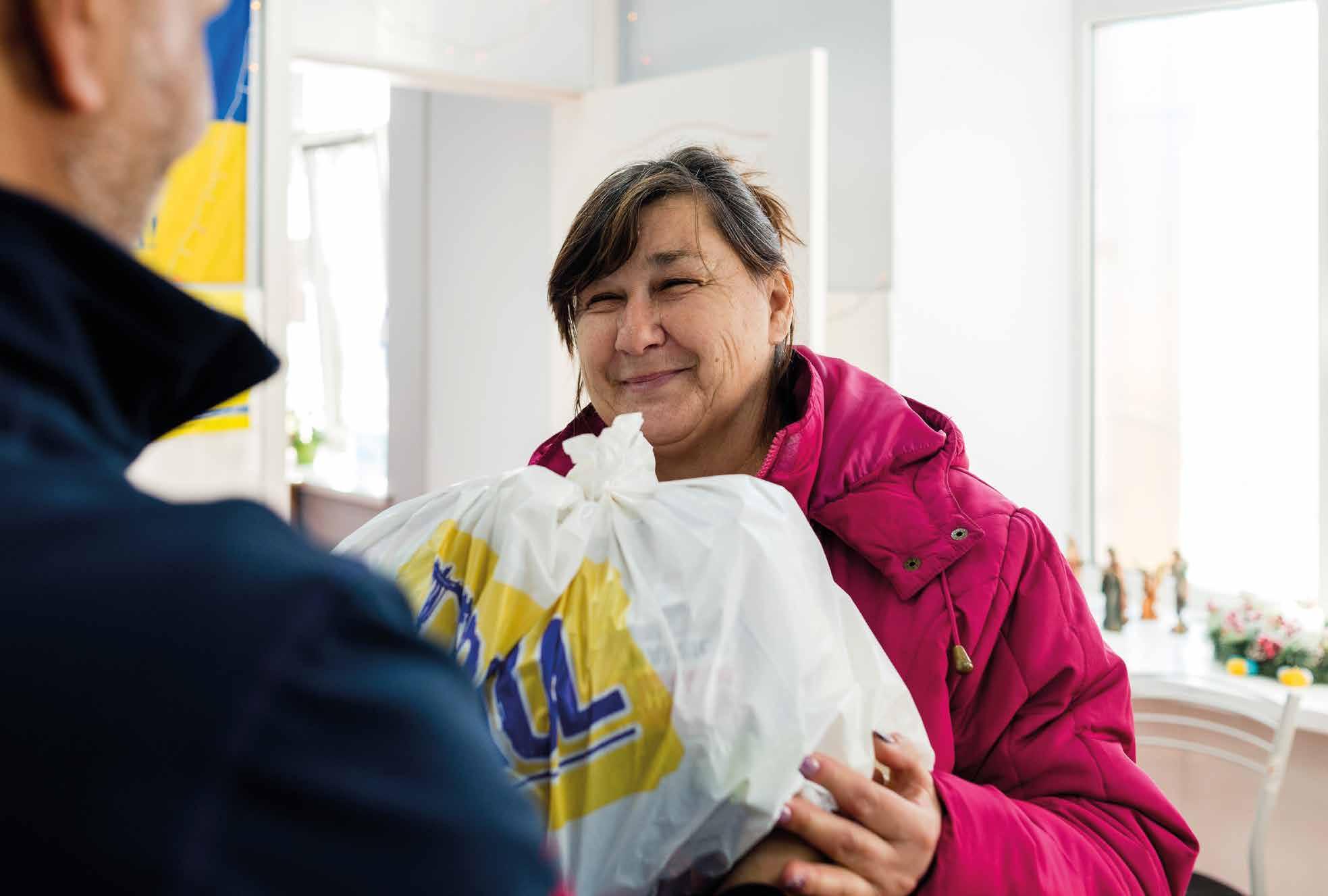
1 minute read
HOW WE HELPED: FOOD
With so many millions of people affected by the conflict, the demand for support to meet basic needs such as food remains high. In a 2022 survey of communities affected by the conflict in eastern Ukraine, 83% of those surveyed stated that access to food was their main concern. Many people have had to cope by cutting portion sizes (with adults doing so to feed their children) or missing out some meals altogether.
DEC funds are supporting a variety of types of food assistance, including providing hot meals and food baskets to people at collective centres; providing daily food assistance through soup kitchens; and distributing weekly food baskets to vulnerable families in affected communities.
Throughout the response, DEC member charities have been flexible in responding to people’s needs: for example, moving away from providing a standard food basket of pre-selected items to tailoring items based on an individual’s need. Some partner organisations have supplemented food packages with vouchers that can be used in local shops to purchase food items of their choice.
With DEC funding, member charities and their partner organisations are also finding inventive ways to support longer-term resilience and self-sufficiency. In Chernivtsi in western Ukraine, an increase in the number of internally displaced people prompted a DEC partner organisation to obtain equipment to set up a small bakery. Bread from the bakery was provided to vulnerable and internally displaced
119,100 people received food assistance consisting of food baskets and hot meals
Meeting diverse needs
People’s needs amid the crisis in Ukraine are diverse and their ability to meet them varies across the country depending on the conflict situation and the services available in their local area. DEC funding is supporting implementing partners to take a holistic approach, providing a range of services rather than a single, stand-alone type of support. For example, when distributing food items at community centres, partners are integrating protection and mental health services, and sharing information and providing referrals to other services as required. One DEC member charity supported the creation of five community ‘heating points’ across the winter period, serving both internally displaced people and host communities. As well as providing hot meals and drinks and serving as distribution sites for food packages, these centres provide somewhere warm and safe for the community to rest, and to come together for social interaction. The centres have been more popular than anticipated with more than 7,000 individuals attending during the reporting period.










